Description
ABSTRACT
Dual Titles on Federal Government Property in Lagos State: A Review of Law and Practice
Olagoke Kuye*
At the turn of the millennium, the Federal Government decided to dispose of its non-core landed assets across the federation after setting up various committees particularly the Presidential Implementation Committee of the White Paper on the Commission of Inquiry into Alienation of Federal Government Landed Property. This alienation of Federal properties threw up a challenge in Lagos where the state considered that by virtue of section 1 of the Land Use Act, these Federal properties ought to have passed to the Governor who should hold the landed assets in trust for Nigerians within the state territory. As a backlash, Lagos State ushered a policy of regularisation of titles by purchasers of alienated Federal properties in Lagos and a suit was instituted at the Supreme Court about the same time sequel to the policy by the Lagos State Government. Although the Land Use Act has, in recent times, attracted calls from various quarters for amendments, this paper deals with a review of the law and practice on transfer of title of the Federal Government to third party purchasers as the Land Use Act is silent on whether such purchasers can solely rely on the Certificate of Occupancy issued by the Federal Government or whether a Certificate of Occupancy should be obtained from the State Government in whose territory the land is. The paper examines the effect of regularisation of Federal titles and concludes with a call for review of the Land Use Act.
INTRODUCTION
In the wake of the dispute between the Federal Government and Lagos State Government over the handling and disposition of Federal lands and properties within Lagos State culminating in the case of AG Lagos State v AG Federation & 35 Ors,1 certain issues were raised and decided. The issues included whether urban and regional planning was an exclusive, concurrent or residual legislative matter; the validity of the Urban and Regional Planning Decree No. 88 of 1992 promulgated by the Military Government to operate as a Federal legislation; whether the ownership rights of the Federal Government include the power to control and regulate town planning and physical development in relation to such lands within the territory of a state.
The decision of the Supreme Court in its original jurisdiction was that urban and regional planning was a residual matter for the states to legislate upon; that the Urban and Regional Planning Decree No. 88 of 1992 being an existing law however, became a law of the State with respect to a matter on which a House of Assembly is empowered by the Constitution to make by section 315(1) of the 1999 Constitution, and all building and development activities of a Federal Government agency with regards to its properties within a state must be restricted to “those matters which are inextricably part of the traditional, operational, technical and all aspects of the subject matter of a particular Act”2 enabling the agency as such, and these are not expected to affect the general planning power and control of a state; and that the Federal Government can neither authorise the building of any structure within a state which does not comply with planning laws of that State nor can it grant approval with respect to urban and town planning matters to third parties within a state’s territory except the State Government.
* LL.B, BL. Associate, Adekunle Omotola & Co, Lagos
- (2003) 6 SC (Pt 1) 24
- ibid 63, per Uwaifo, JSC

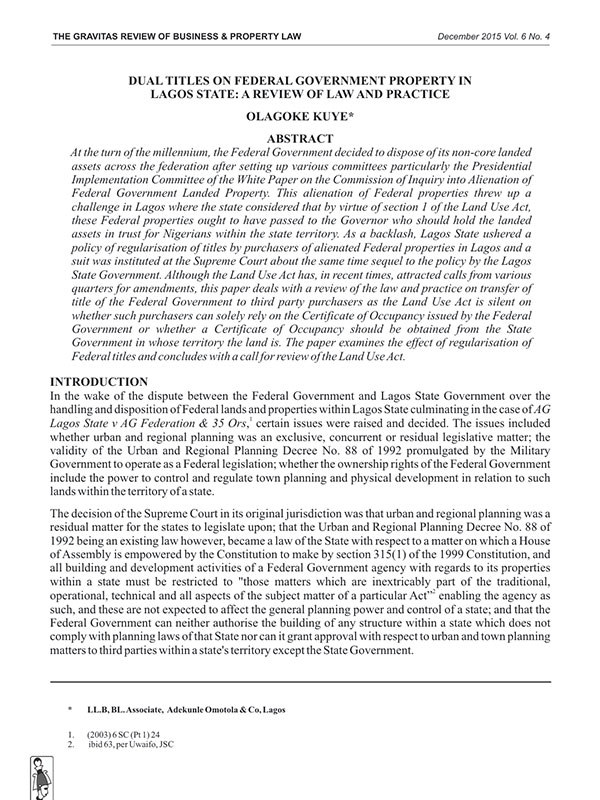
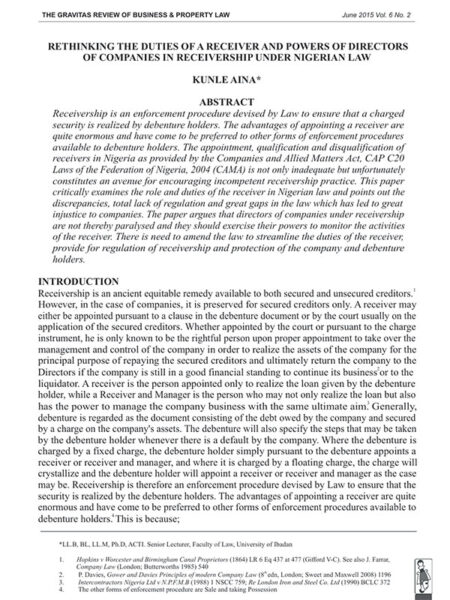
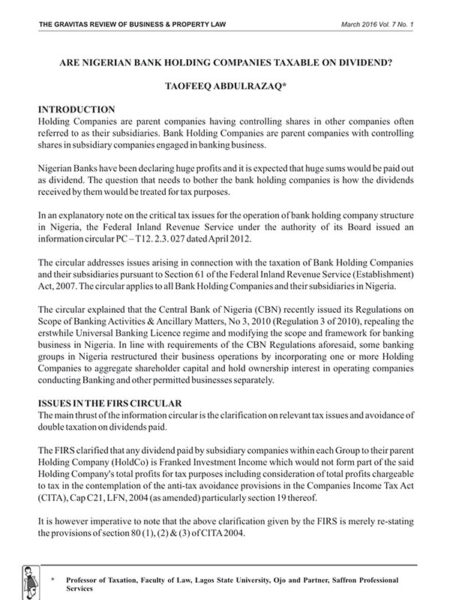
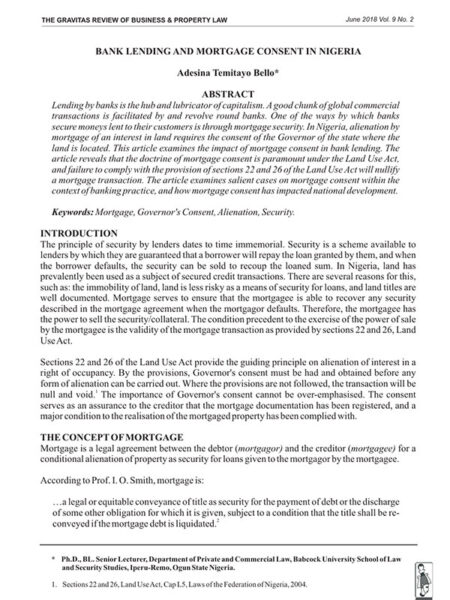
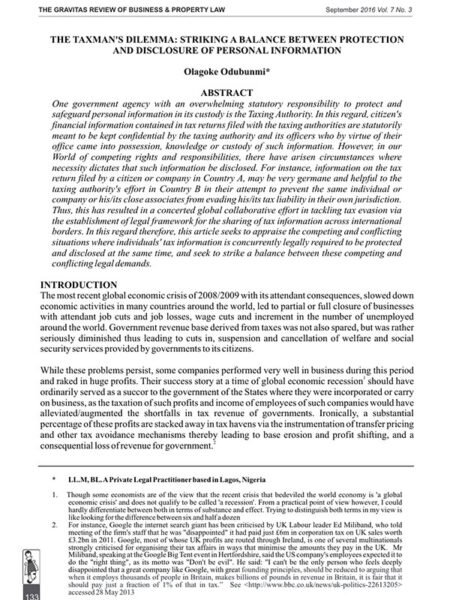


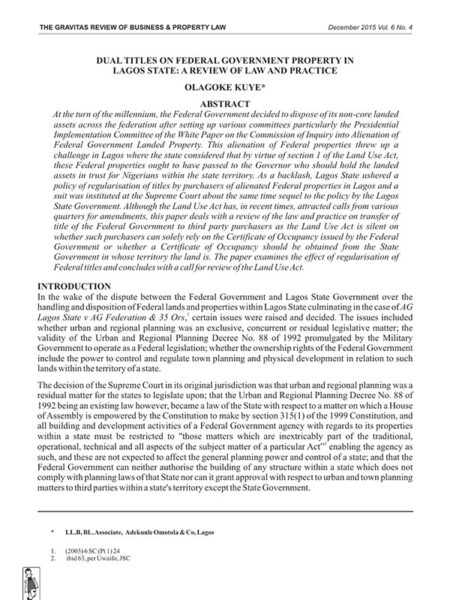
Reviews
There are no reviews yet.